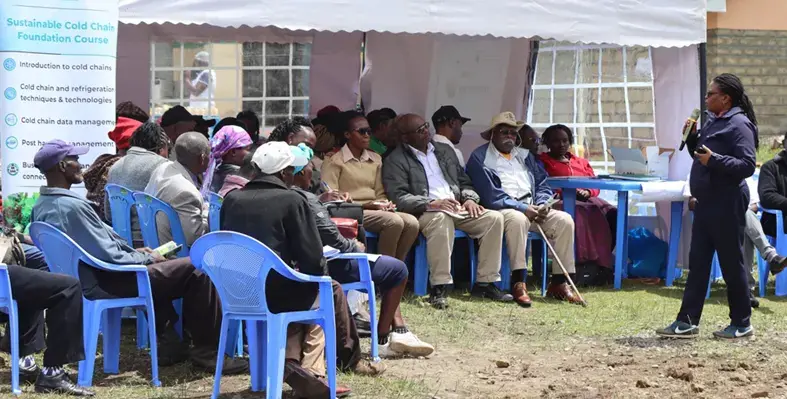Kenyan farmers are getting a chance to attend a Clean Cooling Network open day, which will feature interactive demonstrations of various clean cooling technologies, including solar-powered pre-cooling and cold-storage and temperature-controlled refrigeration transport vehicles and solutions
The event is organised by the the African Centre of Technology Studies (ACTS) which is partnering with the Centre for Sustainable Cooling, University of Birmingham and UNEP to set up the Clean Cooling Network Reference Community Cooling Hub (CCH) in Kiambu County.
Besides practical demonstrations, the Open Day also offered a platform to address challenges faced by farmers in regard to climate resilience, food security, nutrition and markets. Insights on the programme’s support, financing opportunities, and collaborative efforts were also shared by experts.
The project aims to enhance the value of diverse and quality horticultural produce - improving quality, market access and connectivity through collective action to boost the livelihoods of farmers, their communities and the overall economy.
The co-operative seeks to offer a range of services including aggregation enabled by sustainable cold chain technologies and logistics, extension and advisory services, access to quality agro-inputs, and facilitation of wider market connectivity to deliver quality horticulture produce to consumers as well as training on all previously mentioned topics.
Farmers expressed great enthusiasm at the event and were also shown the 'try before you buy' cold-chain facilities that would enable them to understand and test the value-add of cold-chain for protecting the quality of produce and create new markets. Moreover, farmers will be able to use these facilities for an extended periods and
The programme will act as a reference for roll-out into further communities in Kenya as well as new markets across Africa including Rwanda, Lesotho and Senegal as the next phase.
“This is a multi-year investment to build the necessary cold-chain system transformation pan-Africa to deliver inclusive, equitable and future-proofed cooling and cold-chain solutions with minimum environmental impact," said professor of Clean Cold at the University of Birmingham and Centre for Sustainable Cooling and Programme Lead, Toby Peters.





